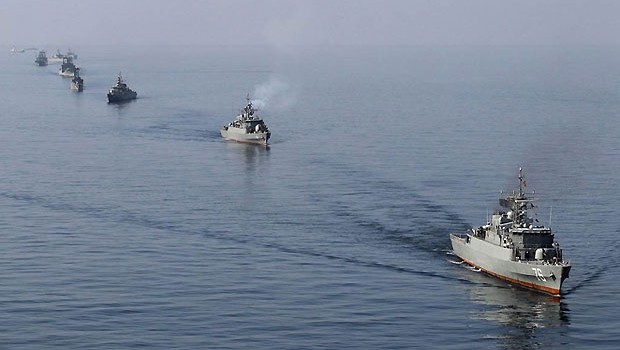Is the Arab world going to witness new developments in the regional confrontation with Iran? I’m afraid so. The region is witnessing political and military escalations which have most recently included the shooting down of a surveillance aircraft over Bahraini airspace. According to the Syrian opposition, a similar aircraft was shot down in Al-Qusayr in Syria.
If this is true—if Iran has developed the audacity to direct aircraft to remote airspaces, effectively violating the norms of political engagement—it is a sign of dangerous developments. These developments also include Iran sending soldiers to Syria; the establishment of espionage units in Bahrain along with Kuwait and Saudi Arabia; and Yemen receiving ships carrying weapons.
These are indications of the increasing aggression of Iranian policy. It seems that such an escalation is taking place for one of two reasons. Either Iran is feeling conscious over its international blockade and regional decline—due to its nuclear activities and the developments of the Arab Spring—or because it senses there is a void to exploit as a result of the lack of American intervention. In keeping with this, President Obama’s policy is displaying US indifference towards the region; the United States has lost its appetite for wars and confrontations, especially in the Middle East.
The second explanation seems more probable. Iran is not afraid but, on the contrary, is realizing an opportunity to extend its influence—given the US’s lack of regional interest, which has not been the case since World War II.
Iran does not believe that Obama will resort to military intervention, no matter how severe regional conflicts might become. Under the leadership of the Revolutionary Guard, Iran plans to make progress and take ground in Syria and Iraq, while simultaneously threatening the region’s oil-producing countries, such as Bahrain.
Are such speculations the result of our own fears or are they based on sound facts? The fact that Iran is sending gunmen, active spy cells, and surveillance aircraft to Syria are all signs that it is attempting to wage new wars and reinforce its influence, without considering the diplomatic formulas of oil-producing countries. Iran’s hostile approach, fueled by its nuclear program, has become more prominent given the failure of Western threats and economic sanctions. Russia’s support is also worsening the situation.
We now face a growing monster that goes by the name of the Iranian regime. Its strength will increase, given that the Revolutionary Guard now influences vital sectors such as oil, public establishments, intelligence, and foreign affairs. This Iranian monster will push Arab countries into more tension and conflict, and may turn the entire region into a war-zone.
